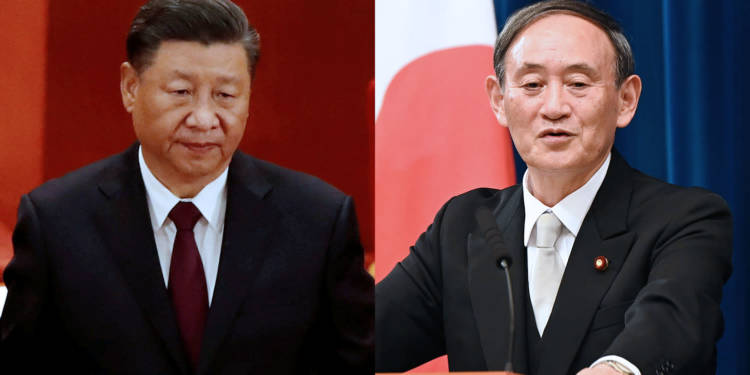The democratic world has started cracking down on Chinese spies that often pose as students and researchers in a bid to steal technology and intelligence from other countries. After the US and India, now Japan is likely to tighten visa norms for Chinese students and researchers.
A pro-government newspaper in Japan, Yomiuri, has reported that Japan will tighten the inspection process in issuing visas, especially for Chinese students and researchers over espionage concerns. In its front-page report, Yomiuri stated that Tokyo sees the move as necessary due to concerns that its technology and security intelligence might be getting leaked to the paper Dragon or other countries on account of inimical operatives who enter Japan by posing as graduate students or researchers.
Yomiuri hasn’t named any sources for its report, but if Tokyo actually goes ahead with the decision of issuing stricter visa norms, especially for Chinese students and researchers, then it would be a deadly blow to Beijing. Chinese spies in the United States who have entered the country as students or researchers are already being taken to task. And now it seems that Japan is also joining the US-led crusade against Chinese espionage networks.
The Yomiuri report quoted an economic security policy expert as saying, “Chinese students who have been rejected by the US may instead change their targets and come to Japan instead.” The United States is Japan’s biggest military partner and the security cooperation between Tokyo and Washington runs very deep. Therefore, insulating itself from Chinese spies is strategically crucial for Japan to ensure that US-Japan ties in security and tech sectors continue to grow seamlessly.
The report of Japan’s likely change in visa policy comes at the heels of Trump administration’s unprecedented crackdown on Chinese spy-students in the United States. The Trump administration has gone as far as unleashing the Federal Bureau of Investigation (FBI) on Chinese espionage networks to punish Beijing for its relentless campaign to steal American Intellectual Property (IP).
The US has been arresting Chinese students and researches involved in visa frauds, in a bid to unearth the Chinese spy networks in the United States. Moreover, the White House has already tightened visa norms and intensified scrutiny for research collaborations between Chinese and American academicians, in order to keep Chinese spies at bay.
Earlier this year, Washington revoked visas of over 1,000 Chinese nationals and made it clear that entry of those who seem like security risks would be suspended. Tokyo is now following the same policy of cracking down on insidious elements within the Chinese student community.
Japan and the US are not the only countries concerned with suspicious elements within Chinese students and researches. Even their QUAD allies- India and Australia have been facing the menace of Chinese espionage networks. India had therefore recently decided that individuals backed by Chinese think-tanks would not be granted visas unless a prior security clearance is secured upon proper scrutiny.
In the case of Australia, China is alleged to use its Thousand Talents Plan (TTP) — a CCP initiative to recruit some of the best and brightest science and technology experts around the world, for zeroing in on some of the best brains in Australia’s academic circles. The CCP tries to access technological advancements and innovations taking place in Australia on Australian taxpayers’ money.
Moreover, China enjoys far too much influence within the Australian Universities and academia. Australian Universities are perilously over-dependent on Chinese students. Chinese students account for more than 10 per cent of the total revenue at many Australian Universities and more than 20 per cent at the University of Sydney and UNSW. Beijing often weaponizes the dependence of Australian Universities on Chinese students for propaganda purposes.
As such, it is now getting well-known how China sends its spies into the democratic world, where so-called Chinese students and researchers hunt upon technological innovations, military secrets and security intelligence. This, in turn, empowers the paper Dragon’s humungous reverse-engineering industry. However, India, the US and now even Japan have decided to hit back and get rid of such obnoxious Chinese influence.
As China’s biggest adversaries tighten their visa norms, it is a tough time ahead for Chinese spies passing off themselves as students or researchers.
